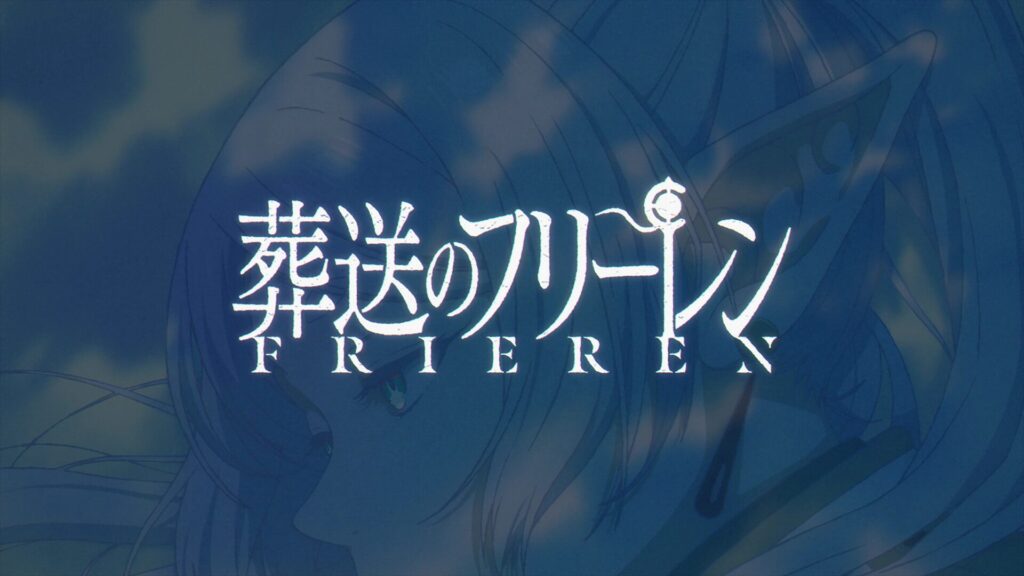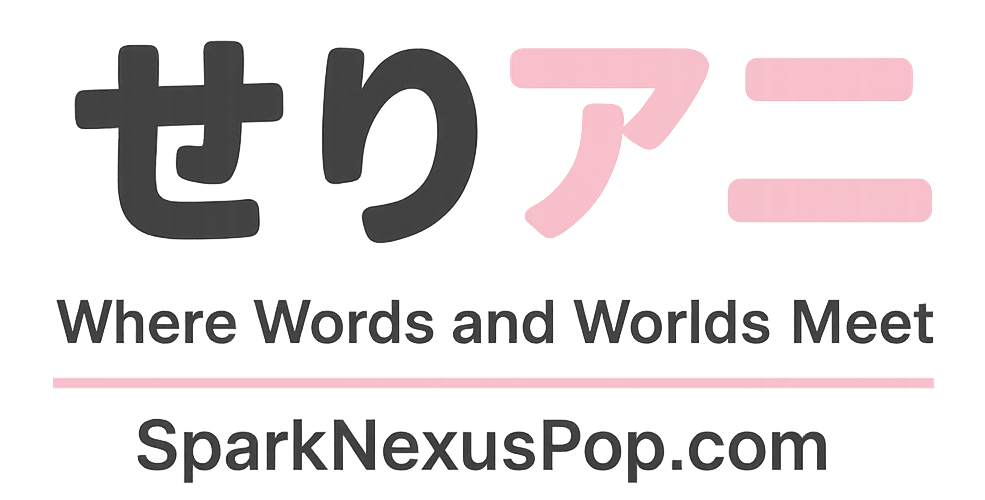
🟦 A peaceful farewell after a decade-long quest.
We finally defeated the Demon King.
わたしたちは やっと まおうを たおしました。
私たちは やっと 魔王を 倒しました。
Now we can return to the capital.
これで しゅとに かえることが できます。
これで 首都に 帰ることが できます。
It’s been a long journey, hasn’t it?
ながい たびでしたね。
長い旅でしたね。
Ten years together… it felt short.
10ねんも いっしょに いたのに みじかく かんじました。
10年も一緒にいたのに短く感じました。
Let’s watch the meteor shower again in fifty years.
50ねんご また りゅうせいぐんを いっしょに みましょう。
50年後また流星群を一緒に見ましょう。
🌟 Scene Vocabulary
● まおう(魔王) /ma.o.u/ – Noun
Meaning: Demon King
● しゅと(首都) /shu.to/ – Noun
Meaning: Capital (of a country)
● かえる(帰る) /ka.e.ru/ – Verb
Meaning: To return (home/place)
● ながい(長い) /na.gai/ – Adjective
Meaning: Long (time or distance)
● みじかい(短い) /mi.ji.ka.i/ – Adjective
Meaning: Short
● りゅうせいぐん(流星群) /ryu.u.see.gun/ – Noun
Meaning: Meteor shower
Quote #1 – Not the End Yet
魔王(まおう)を 倒(たお)したからといって 終(お)わりじゃない。 この先(さき)の 人生(じんせい)の 方(ほう)が 長(なが)いんだ。
Slaying the Demon King was one chapter, but read on, for we’ve stories yet to tell and lives yet to live.
まおうを たおした から と いって おわり じゃ ない。
この さきの じんせいの ほうが ながいんだ。
maou o taoshita kara to itte owari ja nai.
kono saki no jinsei no hou ga nagain da.
🌟 Waku Waku Word Dive
● まおう(魔王) /ma.o.u/ – Noun
Meaning: Demon King – the ruler of evil
● たおす(倒す) /ta.o.su/ – Verb
Meaning: To defeat or bring down
● おわり(終わり) /o.wa.ri/ – Noun
Meaning: End; conclusion
● じんせい(人生) /jin.sei/ – Noun
Meaning: Life; one’s lifetime
● ながい(長い) /na.gai/ – Adjective
Meaning: Long (time or distance)
● さき(先) /sa.ki/ – Noun
Meaning: Future; ahead
📘 Mini Grammar Boost
~からといって~じゃない
Ex: 魔王(まおう)を 倒(たお)したからといって 終(お)わりじゃない
Tip: Just because something happens, doesn’t mean something else is true. A common way to deny an assumption.
~じゃない
Ex: 終(お)わりじゃない
Tip: A casual way to say “It’s not the end.” Often used in conversation.
~のほうが~
Ex: 人生(じんせい)の 方(ほう)が 長(なが)い
Tip: Used when comparing things — “X is more than Y.”
~んだ
Ex: 長(なが)いんだ
Tip: Adds explanation or emotion — similar to “you know” or “you see.”
🔀 Slash Reading – Japanese / English
魔王(まおう)を 倒(たお)した
We defeated the Demon King
からといって
but that doesn’t mean
終(お)わりじゃない。
it’s the end.
この先(さき)の
From here on
人生(じんせい)の方(ほう)が
the rest of our lives
長(なが)いんだ。
will be longer.
Quote #2 – A Life Beyond Our Imagination
フリーレン、 君(きみ)の この先(さき)の 人生(じんせい)は 僕(ぼく)たちには 想像(そうぞう)も できないほど 長(なが)いものに なるんだろうね。
Frieren, the life that lies ahead of you will be far longer than the rest of us could know or that we could begin to comprehend.
ふりーれん、 きみの この さきの じんせいは ぼくたちには そうぞうも できないほど
ながい ものに なるんだろうね。
furīren, kimi no kono saki no jinsei wa bokutachi ni wa sōzō mo dekinai hodo
nagai mono ni narun darō ne.
🌟 Waku Waku Word Dive
● じんせい(人生) /jin.sei/ – Noun
Meaning: Life; one’s lifetime
● そうぞう(想像) /sou.zou/ – Noun
Meaning: Imagination; something one pictures
● できる(出来る) /de.ki.ru/ – Verb
Meaning: Can do; be able to
● ながい(長い) /na.gai/ – Adjective
Meaning: Long (duration or length)
● なる(成る) /na.ru/ – Verb
Meaning: To become
● もの(物) /mo.no/ – Noun
Meaning: Thing; concept
📘 Mini Grammar Boost
~には想像もできないほど~
Ex: 僕(ぼく)たちには 想像(そうぞう)も できないほど 長(なが)い
Tip: A strong way to say “so [adjective] that we can’t even imagine.” The ほど adds the sense of degree.
~ものになる
Ex: 長(なが)い ものに なる
Tip: This means “will become something [adjective or descriptive].” Used to express transformation or result.
~んだろうね
Ex: なるんだろうね
Tip: A soft way of guessing or stating something—similar to “I suppose it will…” in English. The ending adds empathy or reflection.
🔀 Slash Reading – Japanese / English
フリーレン、 君(きみ)の この先(さき)の 人生(じんせい)は
Frieren, the life ahead of you
僕(ぼく)たちには 想像(そうぞう)も できないほど
is so long we can’t even imagine
長(なが)い ものに なるんだろうね。
that it will become something far beyond our comprehension.
Quote #3 – A Mere Ten Years
僕(ぼく)は 君(きみ)たちと 冒険(ぼうけん)が できて よかった。 そうですね。 短(みじか)い 間(あいだ)だったけどね。 短(みじか)い? 何(なに)を 言(い)ってるんだ、 十年(じゅうねん)だぞ。
You made this quest the journey of my lifetime. Thank you, all. I feel the same way. Our adventure was a mere ten years. A mere ten? But that’s a full decade spent on one job.
ぼくは きみたちと ぼうけんが できて よかった。
そうですね。
みじかい あいだ だった けどね。
みじかい? なにを いってるんだ、 じゅうねん だぞ。
boku wa kimitachi to bouken ga dekite yokatta.
sou desu ne.
mijikai aida datta kedo ne.
mijikai? nani o itterun da, juu-nen da zo.
🌟 Waku Waku Word Dive
● ぼうけん(冒険) /bou.ken/ – Noun
Meaning: Adventure
● よかった /yo.kat.ta/ – Expression
Meaning: I’m glad; it was good
● みじかい(短い) /mi.ji.ka.i/ – Adjective
Meaning: Short (in time or length)
● あいだ(間) /a.i.da/ – Noun
Meaning: Period; interval
● いってる(言ってる) /it.te.ru/ – Verb
Meaning: Saying (casual form of 言っている)
● じゅうねん(十年) /juu.nen/ – Noun
Meaning: Ten years
📘 Mini Grammar Boost
~ができてよかった
Ex: 僕(ぼく)は 君(きみ)たちと 冒険(ぼうけん)が できて よかった
Tip: Used to express gratitude or relief: “I’m glad I was able to…”
~だったけどね
Ex: 短(みじか)い 間(あいだ)だったけどね
Tip: “It was [something], but…” The けど adds soft contrast.
何(なに)を 言(い)ってるんだ
Ex: 何(なに)を 言(い)ってるんだ、十年(じゅうねん)だぞ
Tip: A casual, emphatic way to say “What are you talking about?”
~だぞ
Ex: 十年(じゅうねん)だぞ
Tip: Sentence-ending particle used by men to strongly assert something. Casual and often emphatic.
🔀 Slash Reading – Japanese / English
僕(ぼく)は 君(きみ)たちと 冒険(ぼうけん)が できて よかった。
I’m glad I could go on this adventure with you all.
そうですね。
I feel the same way.
短(みじか)い 間(あいだ)だった けどね。
It was a short time, though.
短(みじか)い? 何(なに)を 言(い)ってるんだ、 十年(じゅうねん)だぞ。
Short? What are you saying? It was ten whole years!
Quote #4 – Don’t Spoil the Mood
綺麗(きれい)だなぁ。 街中(まちなか)だと 見(み)えにくいね。 人(ひと)が 感動(かんどう)しているんだ。 空気(くうき)を 読(よ)みたまえ。 じゃあ次(つぎ)、五十年後(ごじゅうねんご)もっと 綺麗(きれい)に 見(み)える 場所(ばしょ)知(し)ってるから 案内(あんない)するよ。
Beautiful. The view from inside the city isn’t very good. I’m trying to have a moment here. Don’t spoil the mood. Next time, then. I know a good place. I’ll take us there when the opportunity arises in 50 years.
きれい だなぁ。
まちなか だと みえにくい ね。
ひとが かんどう しているんだ。
くうきを よみたまえ。
じゃあ つぎ、 ごじゅうねんご もっと きれいに みえる ばしょ しってるから あんない するよ。
kirei da nā.
machinaka da to mienikui ne.
hito ga kandou shite iru n da.
kuuki o yomi tamae.
jaa tsugi, gojuu-nen go motto kirei ni mieru basho shitteru kara annai suru yo.
🌟 Waku Waku Word Dive
● きれい(綺麗) /ki.re.i/ – Adjective
Meaning: Beautiful
● まちなか(街中) /ma.chi.na.ka/ – Noun
Meaning: Inside the city
● かんどう(感動) /kan.dou/ – Verb/Noun
Meaning: Deep emotion; being moved
● くうき(空気) /kuu.ki/ – Noun
Meaning: Atmosphere; mood
● よむ(読む) /yo.mu/ – Verb
Meaning: To read; to sense
● あんない(案内) /an.nai/ – Verb/Noun
Meaning: To guide; to lead
Note: 空気(くうき)を 読(よ)みたまえ is a formal, theatrical command that can be playful or dramatic depending on tone.
📘 Mini Grammar Boost
~しているんだ
Ex: 人(ひと)が 感動(かんどう)しているんだ
Tip: Adds emphasis or explanation to an ongoing action. Similar to “You see, someone is feeling emotional.”
~たまえ
Ex: 空気(くうき)を 読(よ)みたまえ
Tip: An old-fashioned formal command form, often playful or theatrical. Similar to “do pay attention.”
~から案内するよ
Ex: 知(し)ってるから 案内(あんない)するよ
Tip: “Because I know it, I’ll take you there.” A natural way to offer to guide someone.
🔀 Slash Reading – Japanese / English
綺麗(きれい)だなぁ。
Beautiful.
街中(まちなか)だと 見(み)えにくいね。
The view from the city isn’t very good.
人(ひと)が 感動(かんどう)しているんだ。
I’m having an emotional moment here.
空気(くうき)を 読(よ)みたまえ。
Read the room, would you?
じゃあ 次(つぎ)、五十年後(ごじゅうねんご)もっと 綺麗(きれい)に 見(み)える 場所(ばしょ)知(し)ってるから 案内(あんない)するよ。
Next time, in 50 years, I’ll take us to a place where it looks even better.
Quote #5 – Still the Same After 50 Years
老(お)いぼれてる。 言(い)い方(かた)ひどくない? 歳(とし)を とった 僕(ぼく)も なかなか イケメンだろ。 五十年(ごじゅうねん)ぶりだね。 君(きみ)は 昔(むかし)の 姿(すがた)の ままだ。 もう 一生(いっしょう) 会(あ)えないのかと 思(おも)っていたよ。
You’re near ancient. Must you be so blunt? Considering my advanced age, I’m still quite handsome, yes? Hard to believe it’s been so long when you show up looking the same as the day we met. I’d convinced myself I would never see you again.
おいぼれてる。
いいかた ひどくない?
としを とった ぼくも なかなか いけめん だろ。
ごじゅうねんぶり だね。
きみは むかしの すがたの ままだ。
もう いっしょう あえないのかと おもっていたよ。
oiboreteru.
iikata hidokunai?
toshi o totta boku mo nakanaka ikemen daro.
gojuunen-buri da ne.
kimi wa mukashi no sugata no mama da.
mou isshou aenai no ka to omotte ita yo.
🌟 Waku Waku Word Dive
● おいぼれる(老いぼれる) /o.i.bo.re.ru/ – Verb
Meaning: To become senile or aged; to grow weak with age
● ひどい(酷い) /hi.do.i/ – Adjective
Meaning: Harsh; cruel
● とし(歳) /to.shi/ – Noun
Meaning: Age; years
● なかなか /na.ka.na.ka/ – Adverb
Meaning: Quite; considerably (in a positive or negative tone)
● すがた(姿) /su.ga.ta/ – Noun
Meaning: Appearance; figure
● あう(会う) /a.u/ – Verb
Meaning: To meet
Note: 「老いぼれてる」 can sound rude or teasing depending on tone and relationship.
📘 Mini Grammar Boost
~じゃない? / ひどくない?
Ex: 言(い)い方(かた)ひどくない?
Tip: A casual way to ask “Isn’t that harsh?” Adds nuance of light protest.
~も なかなか [adjective] だろ
Ex: 歳(とし)を とった 僕(ぼく)も なかなか イケメン だろ
Tip: Used to assert or brag lightly — “I still look pretty good, don’t I?”
~ぶり
Ex: 五十年(ごじゅうねん)ぶり だね
Tip: Expresses how long it’s been since the last time something happened — “for the first time in 50 years.”
~かと 思(おも)っていた
Ex: もう 一生(いっしょう) 会(あ)えないのかと 思(おも)っていたよ
Tip: Used when recalling what one believed in the past — “I thought I would never…”
🔀 Slash Reading – Japanese / English
老(お)いぼれてる。
You’re near ancient.
言(い)い方(かた)ひどくない?
Must you be so blunt?
歳(とし)を とった 僕(ぼく)も なかなか イケメン だろ。
Considering my advanced age, I’m still quite handsome, yes?
五十年(ごじゅうねん)ぶり だね。
It’s been 50 years.
君(きみ)は 昔(むかし)の 姿(すがた)の ままだ。
You haven’t changed a bit.
もう 一生(いっしょう) 会(あ)えないのかと 思(おも)っていたよ。
I had thought I’d never see you again.


